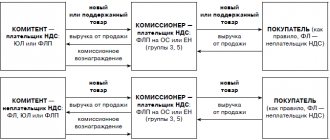In Russian law, an agency agreement appeared only in the current civil legislation and is now the most common intermediary agreement in commercial practice. The most frequently used previously commission and assignment agreements could not cover the entire area of intermediary relations. It was this situation, as well as the requirement to unify the legislation of European countries, that became the reason for the inclusion of an agency agreement in the Civil Code of the Russian Federation. The legal features of the agency agreement are regulated by the provisions of Chapter 52 of the Civil Code of the Russian Federation.
Under this agreement, for a fee, the agent performs actions on behalf of the principal, both on his own behalf and on behalf of the principal. But in all cases - only at the expense of the principal. Therefore, in practice there are agency agreements on behalf of the agent and on behalf of the principal.
Concept and form of agreement
According to the agency agreement, one party (agent), in accordance with the instructions of the other party (principal), performs actual, legal and other actions on its own behalf for a fee, but only at the expense of the principal or on behalf of the principal and at his expense.
If an agent acts on his own behalf, then he acquires rights and obligations under transactions that he has concluded with third parties. If the agent acts on behalf of the principal, the subject of rights and obligations is the principal, who in this case becomes a party to the transaction.
An agency agreement has some similarities with an agency agreement, when an attorney enters into a transaction on behalf and at the expense of the principal, as well as with a commission agreement, when the commission agent, although he enters into an agreement on his own behalf, but exclusively at the expense of the principal.
The form of the agreement fully complies with generally accepted rules on the form of transactions. If this agreement is concluded in writing and it reflects the powers of the agent, then the principal does not have the right to refer to the agent’s lack of relevant powers unless he proves that the third party with whom the agent made the transaction knew about the limitation of the agent’s powers.
Scope of application. Activities of this kind are widespread in the cultural and creative sphere, where entrepreneurs (literary agents, entrepreneurs, impresarios, producers, etc.) carry out both legal and actual actions in the interests of their clients to formalize their relations with publishers, theaters, film studios etc.
Concept - in an agency agreement, one party (agent) undertakes, for a fee, to perform legal and other actions, either on its own behalf or on behalf of the principal, on behalf and at the expense of the other party (principal).
If an agent acts at the expense of the principal, but on his own behalf, then he becomes a party to transactions concluded by him with third parties. After concluding such a transaction, the agent must transfer the rights and obligations under it to his principal. This model of relations is typical for a commission agreement, therefore, the rules on a commission agreement (for example, the procedure for transferring rights in transactions) apply to these relationships, unless they contradict special rules on an agency agreement or the essence of this agreement.
If the agent acts at the expense and on behalf of the principal, then the rights and obligations under transactions concluded with third parties arise from the principal, bypassing the agent. This model of relations is typical for an agency agreement, therefore, general rules on an agency agreement (for example, rules on formalizing relations by power of attorney) apply to these relationships.
The contract is paid, consensual, bilateral.
Elements:
The subject of the agency agreement is the performance of legal and actual actions. This contract is of a continuing nature: the agent does not perform a one-time action, but a complex of various actions.
Parties: principal and agent.
An agreement may be concluded with period .
The law does not impose special requirements on the form of an agency agreement. The right for an agent to perform legal acts on behalf of the principal must be formalized either by a power of attorney or a written agreement containing the agent’s powers. An agency agreement may indicate the general powers of the agent to carry out transactions on behalf of the principal, since at the time of concluding a continuing contract it is not always possible to determine the nature of possible transactions).
Price. The amount of remuneration is determined by agreement of the parties, and in the absence of such agreement, the amount that is usually charged under comparable circumstances for similar services is established. The procedure and terms of payment are established by the contract, and if there is no indication in the contract, the remuneration must be paid within a week from the moment the report on the execution of the order is submitted to the principal for the corresponding period.
Principal's responsibilities:
1. Obliged to issue the agent with the appropriate powers and provide him with the means necessary to carry out this order.
2. Pay the agent a fee.
3. An agency agreement may provide for the obligation of the principal not to enter into similar agency agreements with other agents operating in the territory specified in the agreement, or to refrain from carrying out independent activities in this territory that are similar to the activities that form the subject of the agency agreement.
Agent responsibilities:
1. legal and actual actions in the interests and at the expense of the principal .
2. During the execution of the contract, the agent is obliged to provide a report accompanied by evidence of expenses incurred at the expense of the principal. The procedure and deadlines for submitting reports are established by the contract, and if not specified in the contract, as the contract is executed or upon expiration of the contract. The principal's objections to the report are accepted within 30 days after submission of the report. After the expiration of this period, the report is considered accepted without objection, and the agent is considered to have executed the order.
3. An agency agreement may provide for the agent’s obligation similar agency agreements with other principals
The terms of the agency agreement, by virtue of which the agent has the right to sell goods, perform work or provide services exclusively to a certain category of buyers (customers) or exclusively to buyers (customers) located or residing in the territory specified in the agreement, are void.
The agency agreement allows for the possibility of a subagency agreement, i.e. entrusting the fulfillment of one's obligations under a contract to a third party, unless such a possibility is expressly excluded in the contract. The agent is responsible for the actions of subagents to the principal.
An agency agreement may provide for the agent’s obligation to enter into a subagency agreement indicating its specific conditions (for example, with an advertising company).
Termination of the agency agreement:
The fixed-term agency agreement is terminated upon expiration of this period. An open-ended contract can be terminated by unilateral refusal of its execution by either party.
The contract is terminated if the agent, an individual, is declared incompetent, partially incapacitated, missing, insolvent (bankrupt), or in the event of death; in case of liquidation of a legal entity.
Subject of the agency agreement
The subject of the agency agreement is the provision of intermediary services, which may include intangible services, as well as actual and legal actions. The law does not provide for any restrictions on the type and nature of actions performed by the agent, therefore the principal has the right to instruct the agent to carry out any actions.
The concept of the subject of this contract follows from the very concept of the contract and represents all the factual and legal actions that the agent is obliged to perform in connection with the instructions of the principal.
The subject of an agency agreement is not limited by the strict framework of current legislation, so it is convenient to conclude them in order to attract buyers or search for suppliers. Most organizations use this convenience.
The subject of the contract consists not only of actions that have legal consequences, but also of actual actions. For example, an agent can not only conclude transactions, but also engage in the sale of other people's goods, conduct negotiations, surveys, organize exhibitions, advertising campaigns, etc. This is very beneficial for the principal, who does not have the knowledge and experience to independently operate in this direction. At the same time, the subject of the contract cannot be only actual actions; they are included in it as complementary legal actions.
Another important specific circumstance also relates to the subject. Both the principal and the agent have the right to demand restrictions on the other party's actions in serving other principals or in engaging other agents. For example, the contract may include conditions that limit the parties' actions in a specific type of business or in a certain territory.
The agency agreement is paid, bilaterally binding and consensual.
Parties to the contract and their responsibilities
The parties to an agency agreement are the principal and the agent. A principal is a person on whose behalf an agent can perform legal and other actions both on his own behalf, but at the expense of the principal, and on behalf and at the expense of the principal.
At the same time, an agent is a person who, for a fee on behalf of the principal, undertakes to perform legal and other actions in his own name, but at the expense of the principal, or on behalf and at the expense of the principal.
In the process of executing an agency agreement, the agent must submit reports to the principal in the order and within the time limits provided for by this agreement. If the contract does not contain the appropriate conditions, the agent submits reports as he fulfills the contract or in connection with the termination of the contract.
The principal, in turn, undertakes to pay the agent remuneration in the amount and in the manner established in the agency agreement.
The difference between a contract of agency and a contract for the provision of services
The main difference between an intermediary agreement and an agency agreement is that by signing the latter, the agent undertakes to perform all actions on behalf of the principal.
Thus, the agent only carries out specific instructions from the customer, without showing his own initiative.
If we are talking about concluding an agency agreement for the provision of intermediary services, then the scope of its action allows the agent, as they say, to turn around and make transactions, guided by his own vision of the situation.
Any contract must contain essential terms, otherwise the document will be declared invalid. Let's consider the essential terms of the service agreement, as well as typical errors during registration.
How to correctly draw up a certificate of completion of work under a service agreement, read here.
The transfer of some company functions to a third party is called outsourcing. From this article you will learn how to correctly draw up an outsourcing agreement.
https://youtu.be/HsMKgYi4CZw
Basic elements of an agency agreement
A typical agency agreement can and should include the following main sections:
- Subject of the agreement. It is said that the agent will perform certain legal and other actions assigned by the principal for a fee. All terms of the transaction must be agreed upon by the parties in instructions to the agent.
- Duties of the parties. The responsibilities of the parties are stipulated in turn. Concluding transactions on behalf of the principal, informing him about the conditions and progress of the contract. Informing the agent about the requirements for concluding transactions, providing the necessary funds, paying remuneration, etc.
- Work order. It refers to sending a written instruction to the agent to conclude an agreement using postal, telephone, electronic and other communications. After completing the assignment, the agent sends the principal a report on the work performed and expenses incurred. The principal's instructions and the agent's report are an integral part of the contract.
- Payment procedure. The agreement on the amount of the agent's remuneration and the settlement procedure (money, securities, bills) are determined. Reimbursement of expenses for organizing the execution of the contract and instructions of the principal.
- Responsibility of the parties. Options for violating the obligations of the parties and the procedure for eliminating them are considered. Provision is made for property liability and negotiations on emerging disputes. Possibility of appeal to the arbitration court.
- Force Majeure. The following are recognized as force majeure circumstances: fire, natural disasters, accidents, wars, military operations of any nature, strikes and others. Notifying the other party of force majeure, temporary termination of the contract.
- Final provisions. The time of entry into force of the agreement and its validity period, as well as the extension of the term, are determined. Terms and procedure for termination of the contract, as well as its termination. Language of preparation and number of copies of the agreement.
- Details and signatures
In what cases is an agency agreement concluded?
The legal features of agency agreements extend to legal and other areas. The subject of the agreement is civil services. Most often they are associated with entrepreneurial activities aimed at making a profit.
In its structure, an agency agreement looks like a legal agreement between the customer and the contractor. The main provisions of the document should not contradict the current legislation of the Russian Federation. Otherwise, the injured party has the right to file for termination of the agency agreement and bring the violator to financial penalties.
In the event of concluding an agency agreement with the principal and transferring authority to perform to third parties, the agent is responsible to the customer.
Just above we looked at what an agency agreement is and why it is beneficial to the principal. But the contract also protects the rights of the agent. If the contractor has suffered material damage due to the actions of the customer, then the injured person has the right to demand compensation for damage from the principal.
When drawing up an agency agreement, the powers of the contractor should be indicated. This is necessary so that in the event of litigation it is clear to what extent the agent exceeded his authority or, conversely, acted within the framework of the contract.
Everything about the agency agreement, including the specifics of its conclusion, can be found in Art. 1005 of the Civil Code of the Russian Federation. It contains comments on the provisions that explain the main points of the law.
At the drafting stage, the agency agreement may have the nature of explanatory clauses. Based on business interests, the customer has the right to include a number of instructions to the contractor. For example, the agreement may specify options for concluding contracts for services (only supply contracts or purchase and sale from the customer’s funds). By signing the agreement, the agent undertakes to follow the instructions of the principal and not go beyond the legal framework of the law.
Agency agreement: essential terms
First of all, the condition on the subject must be agreed upon, that is, what specific actions the agent must perform. In this case, the principal may demand from the agent that his actions be specific, feasible and legal.
If the client's instructions violate mandatory norms established by law, the agent may demand that the contract be invalidated. Disputes are possible with third parties who, on behalf of the principal, made transactions through an agent. Therefore, if an agent acting on his own behalf was liable to third parties, he may demand compensation from the client for damages if he proves the client’s guilt.
Other essential terms of the agency agreement are not specified by law, but given their importance for the parties, they must be agreed upon. There are several such conditions.
In order to avoid unnecessary disputes between the parties, it is necessary to provide a condition regarding the deadline for the execution of the order by the agent. To avoid misunderstandings, it is necessary to indicate in the contract a specific date before which the order must be executed. It is a good idea to agree on the terms within which the agent must transfer to the principal property purchased from third parties, and others.
Agreement on the agent's remuneration is possible in a fixed amount or as a percentage of the transaction amount. However, you need to pay attention to the fact that when specifying payment in the form of interest, the interests of the parties may not coincide. Thus, it is beneficial for the principal to buy the goods at the lowest price, while the agent will benefit from the higher cost of the goods.
The parties also need to establish a settlement procedure. Agent services can be paid on the following terms:
- advance payment (full or partial advance);
- payment after the agent has completed a transaction with a third party;
- payment after the principal accepts the report from the agent;
- payment after the principal receives the goods from a third party;
- independent deduction by the agent of his remuneration from the amount of the transaction completed with a third party.
A condition for the distribution of additional benefits (if it arises) may also be provided here.
An important condition that allows the principal to exercise control over the activities of the agent is the procedure for submitting reports during the execution of the agency agreement and at the end of its validity. Here it is possible to provide for the obligation of the agent to transfer to the principal copies or copies of agreements concluded by him with third parties.
Termination of the agency agreement
The agency agreement may be terminated in the following cases:
- if one of the parties refuses to fulfill an agreement that was concluded without specifying its validity period;
- if the agent died, was declared incompetent, partially capable or missing;
- if an individual entrepreneur who is an agent is declared insolvent (bankrupt).
Thus, we have reviewed an agency agreement that will provide invaluable assistance in organizing business (and other) activities.








